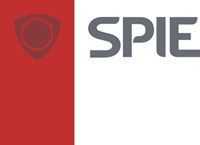Presentations at the first SPIE Midwest / Chicago Conference
November 10th, 2007
Categories: Cultural Heritage, Multimedia, Tele-Immersion, VR Art

About
Virtual Reality Art as a Medium of Research and Exploration by Helen-Nicole Kostis and Development of the Interactive Art Visualization of the Kizhi Ensemble by Daria Tsoupikova were presented at the first Chicago Midwest chapter of the SPIE Conference.
Helen-Nicole Kostis participated in the organization committee of the first SPIE conference chapter in the Midwest area and Daria Tsoupikova served on the advisory board of the conference. The conference featured speakers from Northwestern University, University of Illinois at Chicago, Kent State University, University of Notre Dame, and the University of Wisconsin at Madison.
Helen-Nicole Kostis presented the production, research and development of Skin, a real-time interactive hyperstereoscopic high-definition audiovisual installation that visualizes a dialogue between physical and digital senses of touch.
The installation employs a screen onto which hyperstereo skin-related video imagery is projected. Physical gestures of the participating audience are translated into accentuated and non-literal digital deformations of the projected imagery. The installation is displayed on a C-Wall system and is developed on Electro, an open source cross-platform application development environment. The hyperstereoscopic imagery was shot in a studio space using two High-Definition video cameras.
Daria Tsoupikova presented the Interactive Art Visualization of the Kizhi Ensemble, a visualization research project centered on the world famous architectural ensemble Kizhi.
The project capitalizes on the current research of the Electronic Visualization Laboratory (EVL) in the field of interactive stereoscopic computer graphics, devices and frameworks, high-resolution tiled graphic displays, and network distributed collaborative technologies. It is being created using an application development environment, Electro, designed for use on both cluster-driven tiled displays and desktop systems. The project is being developed in collaboration with Robert Kooima, inventor of Electro and a computer scientist at EVL.